U.S. Olympic Trials: 5 Tales of Heartache and Levels of Redemption
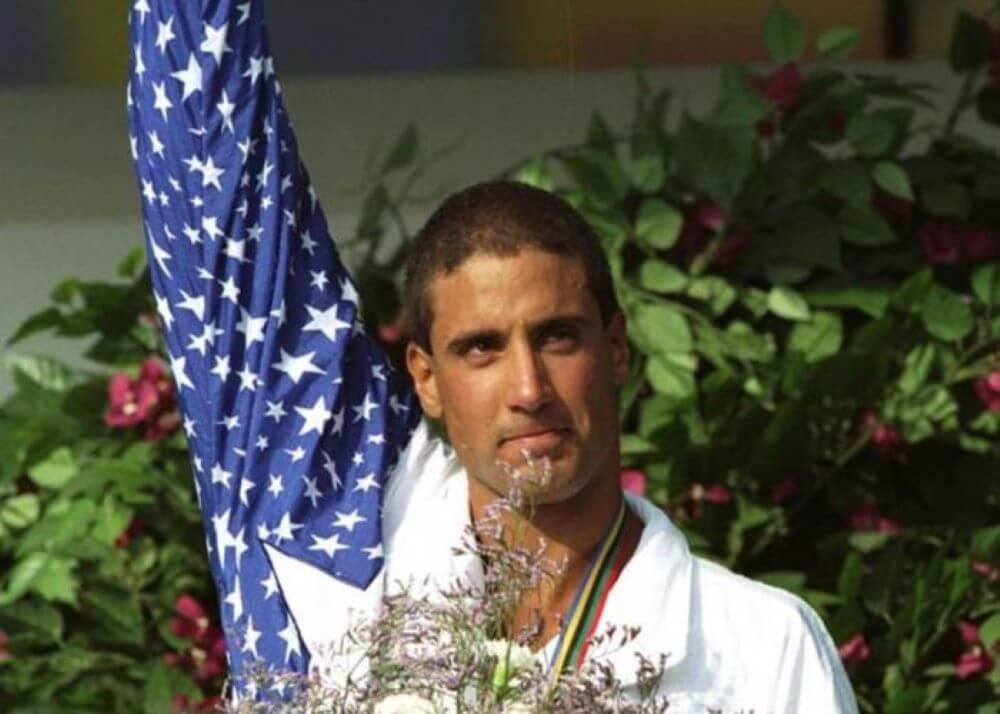
The United States Olympic Trials have been split into two waves when they are held this summer. They will bring elation to a few dozen athletes who earn the right to represent Team USA at the Olympic Games in Tokyo. At the same time, hundreds of swimmers will go home without an Olympic bid, and while most of that group will have expected that outcome, some leading contenders will be forced to deal with a heavy dose of heartache.
The U.S. Trials are brutal in nature, since only the top-two finishers in each event qualify for the Olympic Games, with the third through sixth-place finishers awarded relay berths in the 100 freestyle and 200 freestyle. A third-place showing in any other event is no better than 42nd or 87th. Eric Shanteau once said it was no better than finishing last. Even if the third-place finisher posts the third-fastest time in the world, there is no reprieve. It’s still not good enough, and a scenario of this sort only emphasizes the slim margin of error that exists.
As Swimming World plays the waiting game for the rescheduled Trials, we offer a look at some of the biggest heartbreak stories since 1988, and how those athletes responded to their situation.
Pablo Morales – 1988
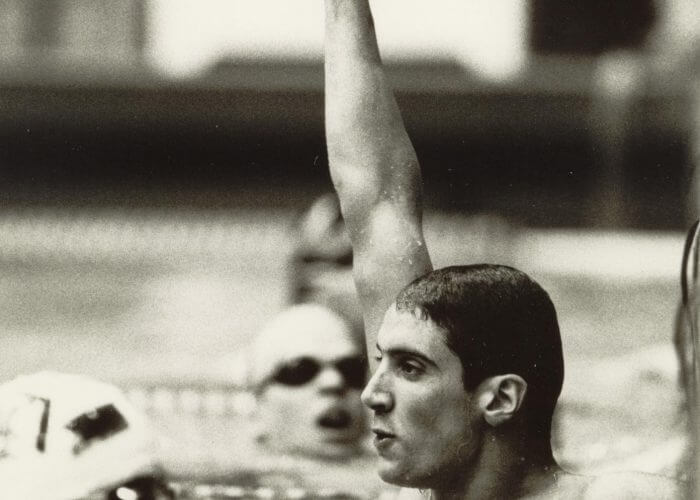
Photo Courtesy: Tim Morse
Heading into the Olympic Trials in Austin, Pablo Morales was viewed as near-lock to qualify for the Seoul Games. Not only was he a triple medalist from the 1984 Olympics in Los Angeles, Morales was the reigning world champion and world-record holder in the 100 butterfly. But a third-place finish in that event left Morales off the Olympic roster, his time more than a half-second slower than his global standard.
Making matters worse, Morales was also third in the 200 butterfly, and he failed to advance out of the preliminaries of the 200 individual medley, an event in which he won a silver medal in Los Angeles. Instead of competing in Seoul, Morales headed into an early retirement and limited how much of the Olympics he watched.
Morales, though, put together a tale of redemption four years later. Following a three-year retirement, the Stanford product not only qualified for the 1992 Olympics in Barcelona, he won the gold medal in the 100 butterfly. As far as emotions go, Morales went from despair to elation.
“The key for me was realizing whether it was something I truly wanted to do again,” Morales said. “And once I got back into it again, I was like, ‘Oh, this is right. This is good. This is what I wanted to do.’ It was wonderful being back in the water again and training, getting in shape and having that quantifiable goal to go after.”
Eric Wunderlich – 1992
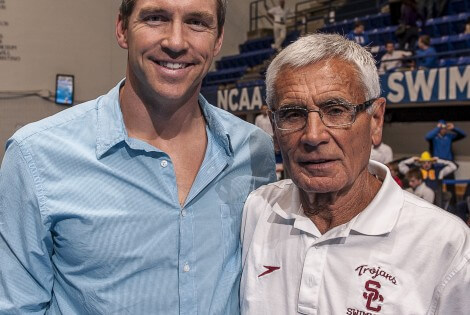
Photo Courtesy: Peter H. Bick
Coming off a bronze medal in the 200 breaststroke at the 1991 Pan Pacific Championships, Eric Wunderlich was a leading challenger to qualify for the 1992 Olympics in Barcelona. But Wunderlich notched a pair of third-place finishes at Trials in Indianapolis, doubling his disappointment. While Wunderlich was more than two seconds off an Olympic nod in the 200 breaststroke, he missed in the 100 breaststroke by .33.
As Wunderlich forged ahead, he won a silver medal in the 200 breaststroke at the 1994 World Championships and added a Pan Pacs crown in the 100 breast in 1995. Clearly, Wunderlich bounced back in impressive fashion and had built up momentum in the gap between Olympiads.
At the 1996 Trials, Wunderlich added another third-place finish in the 100 breaststroke but was second in the 200 breast to gain access to the Atlanta Games. At the Olympics, Wunderlich was seventh in the 200 breaststroke.
Jenny Thompson – 1996
The Olympic Trials were supposed to be a formality for Jenny Thompson, who was a global star and pegged to be one of the biggest names at a home Olympiad. However, Thompson, a 1992 Olympian, struggled mightily in Indianapolis, a third-place finish in the 100 freestyle jumpstarting what would be an anguish-filled week.
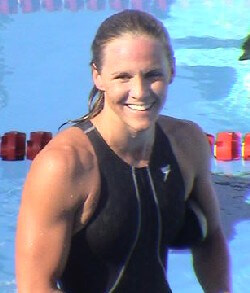 Rather than perform at a level that would set Thompson up for a massive medal haul in Atlanta, she was seventh in the 200 freestyle, fourth in the 100 butterfly and third in the 50 freestyle. The performance is considered one of the biggest shockers in Olympic Trials history, although it also served as a perspective-providing moment. Instead of entering into a den of self-pity, Thompson emerged as a stellar teammate and mentor.
Rather than perform at a level that would set Thompson up for a massive medal haul in Atlanta, she was seventh in the 200 freestyle, fourth in the 100 butterfly and third in the 50 freestyle. The performance is considered one of the biggest shockers in Olympic Trials history, although it also served as a perspective-providing moment. Instead of entering into a den of self-pity, Thompson emerged as a stellar teammate and mentor.
“I’ve been proud of her in a lot of things, but how she handled the disappointment of how she finished at the Olympic Trials and the way she prepared for the Games, I think has taken an enormous amount of character,” said Thompson’s coach, Richard Quick. “I really admire her because she hasn’t looked at the short side of things. She’s looked at the long side. It’s a tremendous honor to be on the Olympic team. It’s a tremendous honor to be on two Olympic teams. This is her second one. It carries a responsibility with it that Jenny recognizes. And she’s accepted that responsibility. She knows the best way to prepare is to race all these races as if she were swimming all her events. Instead of feeling sorry for herself, she has been ready to do anything she can for the U.S. as a relay member.”
Although Thompson did not qualify to race individually in Atlanta, the coaching staff used its discretion to race Thompson on all three relays, each of which captured gold. Thompson went on to compete in two more Olympiads (2000 and 2004) and finished her career with 12 Olympic medals, tied for the most by an American woman.
Brendan Hansen – 2000
When Brendan Hansen arrived the 2000 Olympic Trials in Indianapolis, he was already a rising star. Bound for the University of Texas, Hansen won a national title in the 200 breaststroke in 1999 and was improving with every competition. Due to his versatility, the Pennsylvania native was considered a contender for Sydney Games invitations in both breaststroke events.
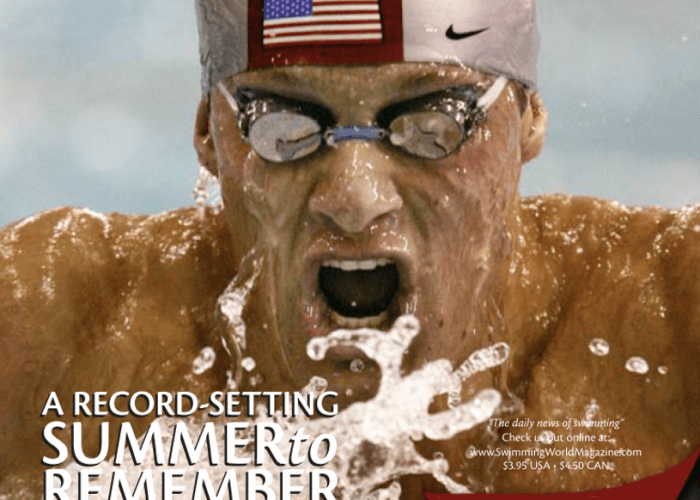
Photo Courtesy: Swimming World Magazine
The 100 breaststroke opened Hansen’s program, and he delivered a third-place finish behind favorite Ed Moses and Auburn’s Pat Calhoun. The 200 breast brought similar results, as Hansen posted another third-place finish, beaten to the wall by Kyle Salyards and Tom Wilkens. Surging down the last lap, Hansen finished just .15 behind Wilkens and given the way he was closing, all he needed was another meter to advance to Sydney. While double third-place finishes would devastate most athletes, Hansen looked at his efforts with maturity and used them as motivation for the future.
“I’m only going to keep working harder and get better,” Hansen. “My best days are ahead of me. In 2004, I’ll be swimming with a vengeance. I’m going to get rid of these demons.”
Indeed, Hansen used the events of Indianapolis as fuel, and he became a world champion in the 200 breaststroke in the summer of 2001. More, he went on to compete in three Olympiads (2004, 2008 and 2012), win six Olympic medals and set five world records, including a pair of world marks at the 2004 Olympic Trials in Long Beach.
Hayley McGregory – 2004/2008
It’s hard enough to deal with one third-place finish at the Olympic Trials. Hayley McGregory finished in that position on four occasions, a seemingly unfair number of close calls.
At the 2004 Trials in Long Beach, McGregory was third in the 100 backstroke and 200 backstroke. However, those placing ahead of her did so by half-second-or-more margins, a comfortable cushion in a sport that can be defined by a hundredth of a second. Four years later, as Trials moved to Omaha for the first, McGregory was much closer.
In the 100 backstroke in 2008, McGregory set a world record of 59.15 in the preliminary heats, only to have Natalie Coughlin better than mark in the next heat. Advancing to the final as the top seed, McGregory found herself in third when the Olympic slots to Beijing were doled out, beaten to the wall by Coughlin and Margaret Hoelzer. Given that her prelim time would have earned an Olympic bid, McGregory faced heartache. That pain was exacerbated when she was third again (for the fourth time in career) in the 200 backstroke.
To McGregory’s credit, she qualified for the World Championships the following year and placed sixth in the 100 backstroke.




Hayley’s story is heartbreaking but nonetheless inspiring. Pablo’s story was history righting itself. His gold in 1992 caused quite a few tears of relief and happiness from the swimming world. Brendan’s greatest performance (to me) was his bronze in 2012’s 100 breast.
Thank you for this wonderful retelling from Trials history.